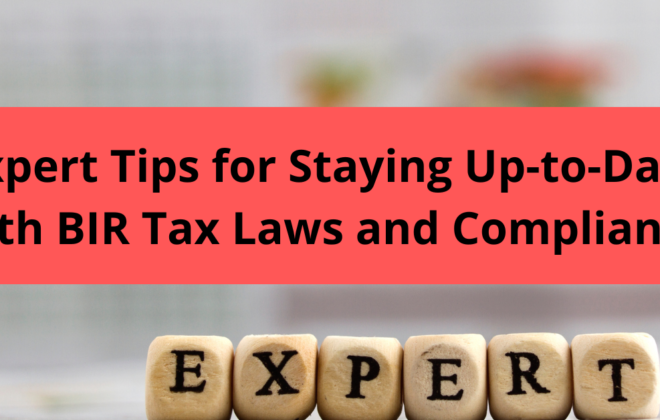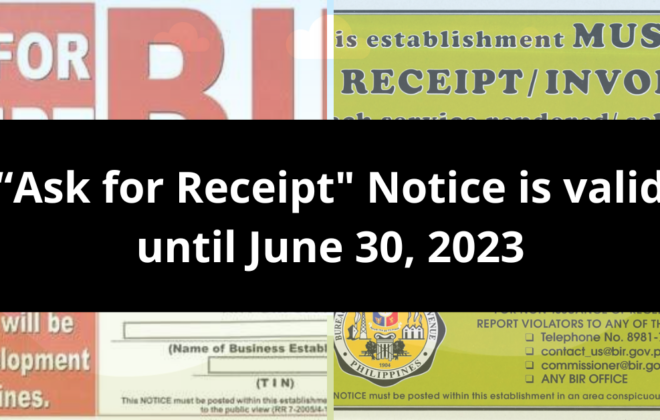A Comprehensive Guide to Taxation for Freelancers in the Philippines
As a freelancer in the Philippines, managing taxes might seem daunting and confusing. With many freelancers now making their mark in digital fields, understanding tax basics is more important than ever. Let’s break down everything you need to know about taxes – from registration to filing.
Why Do Freelancers Need to Pay Taxes?
The BIR considers freelance work a source of income, so freelancers are subject to the same tax requirements as traditional employees and business owners. When you’re registered, your income is taxed just like any other form of earnings in the country.
Paying your taxes isn’t just about legality; it opens doors to financial services like loans, mortgage applications, and government benefits.
Step 1: Registering as a Freelancer with the BIR
Before you start filing taxes, you’ll need to register as a self-employed individual with the BIR. Here’s how to get started:
Obtain a Taxpayer Identification Number (TIN): If you don’t have a TIN yet, visit your nearest BIR branch and apply for one or you may request your TIN online. Freelancers who’ve worked as employees before might already have a TIN, so check your previous records.
Complete BIR Form 1901: This form is for self-employed individuals, including freelancers. Fill out the form and submit it to your Revenue District Office (RDO), which oversees your tax registration based on your location.
Submit Other Requirements: Alongside Form 1901, you’ll need:
- A government-issued ID
- A payment of the registration fee (usually PHP 500)
- An occupational tax receipt or professional tax receipt (if applicable)
- Proof of residence (A valid government-issued ID indicating your address or Barangay Certification)
Get Your BIR Certificate of Registration (COR): After processing your documents, the BIR will issue you a COR. This document officially recognizes you as a registered taxpayer.
Secure an Official Receipt or Sales Invoice: Freelancers must issue an invoice for services rendered. You can order these from BIR-accredited printing companies.
Register your Books of Account via ORUS. If you still do not have an ORUS account then you will need to create one.
Step 2: Understanding Freelancer Tax Types in the Philippines
Once you’re registered, it’s time to get familiar with the types of taxes freelancers typically need to pay. Here are the main ones:
Income Tax: Calculated based on your annual income. Freelancers can use the graduated tax rates (from 0% to 35%) or the optional 8% income tax rate on gross revenue for income below PHP 3 million. Many freelancers prefer the 8% tax option for its simplicity.
Percentage Tax: If you choose not to use the 8% flat tax, you’ll need to pay a 3% percentage tax on your monthly gross receipts.
Expanded Withholding Tax (EWT): Some clients may deduct withholding tax (usually 10% or 15%) from your fees. Ensure they issue a BIR Form 2307 as proof of this deduction, as you can use it to reduce your income tax.
Step 3: Filing and Paying Your Taxes
Now that you know what taxes to pay, let’s look at the filing schedule:
Quarterly Income Tax Returns: Freelancers must file BIR Form 1701Q on a quarterly basis to report their income and pay taxes.
Annual Income Tax Return: At the end of the year, file BIR Form 1701 for your annual income. This is due every April 15 and will summarize your yearly income and expenses.
Monthly and Quarterly Percentage Tax Returns: If you’re paying the 3% percentage tax, file BIR Form 2551Q on a quarterly basis.
Filing and Payment Options
You can file and pay your taxes in a few different ways:
Online through eBIRForms: This is the BIR’s electronic filing system, where you can fill out forms and submit them online.
PayMaya, and Partner Banks: For payments, use digital options like PayMaya, or pay at a BIR-accredited bank.
Step 4: Tracking Your Income and Expenses
Accurate records help you claim deductible expenses, reducing your taxable income and making filing easier. Here are some tips:
Keep Records of All Income: Track each payment from clients, including the date and amount.
Track Business Expenses: Save receipts for business-related costs like internet bills, software subscriptions, office supplies, and travel expenses.
Use Accounting Software: Digital tools like QuickBooks, Xero or Microsoft Excel simplify tracking income and expenses.
Step 5: Maximizing Your Tax Deductions
If you are not filing under the 8% tax rate, tax deductions can reduce your taxable income. Here are common deductible expenses:
- Home Office Expenses: A portion of rent, utilities, and maintenance costs if you work from home.
- Office Supplies and Equipment: Items like computers, notebooks, and office furniture.
- Travel Expenses: Business-related travel costs, including transportation and accommodation.
- Professional Fees: Payments for services like legal or accounting advice.
Step 6: Staying Compliant and Avoiding Penalties
Avoiding late filing penalties and surcharges is crucial for any freelancer. Here are ways to stay compliant:
Set Reminders: Mark filing dates on your calendar to avoid missing deadlines.
Seek Help if Needed: If tax regulations feel overwhelming or you’re unsure about your filings, consider reaching out to an expert.
Our team at DJKA Accounting Service, Inc. is here to help you navigate every step of tax compliance, so you can focus more on your work and less on the paperwork. We can assist you starting with your BIR registration and regular tax compliance. Just email us at info@djkaaccounting.com for more information.
Invest in your financial future
Paying taxes as a freelancer may seem complicated, but once you break it down, it’s manageable. Staying compliant is essential for your career’s growth and protects you from legal hassles. Plus, by following these steps, you can stay focused on what you love: delivering value to your clients.
When it’s time to pay taxes, think of it as an investment in your financial future. Happy freelancing, and here’s to a smooth tax season ahead!
Related Posts
Recent Posts
- New Features and Functionalities of the Online Registration and Update System (ORUS)
- A Comprehensive Guide to Taxation for Freelancers in the Philippines
- New Tax Laws in 2024: What Changes Filipino Taxpayers Should Prepare For
- How to Avoid Common Tax Mistakes in 2024
- Tax Deductions and Benefits Often Overlooked by Filipino Taxpayers





